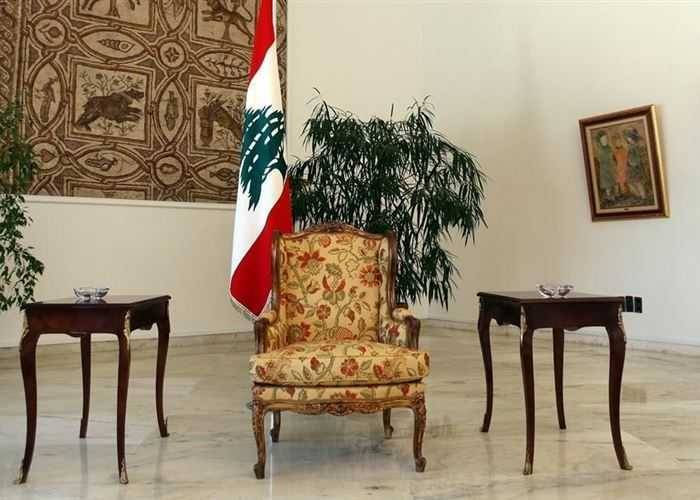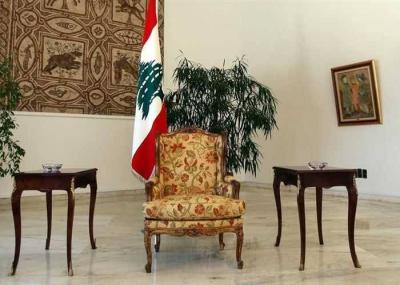Amid the intensifying presidential crisis and the arduous search for solutions that would lead to the election of a new president for Lebanon, initiatives have been proposed by various political forces, the latest of which is the initiative by the opposition deputies, launched from the Parliament and including 31 deputies. This recent initiative is based on two proposals to resolve the presidential crisis: the first suggests that deputies convene in the Parliament to consult with each other without an official invitation or formalization, in order to respect the rules concerning the election of the president as stipulated by the constitution. The consultation period should not exceed 48 hours, after which the deputies would move to an open election session with successive rounds until a president is elected, as the constitution requires. The minutes of the session would remain open, and all parties would commit to attending the sessions and ensuring the quorum according to what was reported by the Kuwaiti newspaper "Al-Anbaa."
The second proposal involves calling the President of the Parliament to hold a session for the election of the President of the Republic, presiding over it according to his constitutional powers. If the election does not take place during the first round, the session remains open, and the deputies and blocs consult outside the hall for a maximum of 48 hours, returning to the public hall for voting in successive rounds, averaging four rounds daily, without interruption and without closing the minutes of the session, until a President of the Republic is elected, with all parties committing to attending the sessions and ensuring the quorum.
This approach proposed by the opposition has elicited varying reactions regarding the roadmap they adopted to resolve the presidential crisis. Some considered it a bypassing of the role of the Speaker of the Parliament, Nabih Berri, and it did not receive a positive echo from the Amal Movement and Hezbollah. In fact, President Berri reaffirmed his presidential initiative based on dialogue or consultation, which would lead to an agreement on a candidate or candidates leading to the election of a president within a timeframe not exceeding ten days.
The opposition has circulated its initiative and held meetings with parliamentary blocs since the announcement, and it will continue its consultations with other blocs, especially the Amal and Hezbollah blocs, on Friday, at a time when they have not explicitly announced their position on it or who the deputies designated to meet with the opposition deputies are.
The Parliament has failed for 12 sessions to elect a President of the Republic, the latest being on June 14, 2023, which saw competition between former ministers Sleiman Frangieh and Jihad Azour. No faction has been able to bring its candidate to the forefront, as there are neither decisive blocs nor coalitions capable of leading their candidate to the Baabda Palace. President Berri stated during the first session held on September 22, 2022, just before the end of President Michel Aoun's term, that white votes were predominant and urged deputies to facilitate dialogue for the sake of themselves and the Lebanese people.
The dialogue call launched by President Berri at that time has turned into an ongoing issue, with accusations exchanged regarding who is responsible for obstructing the election and which party refuses to sit at the negotiation table. The refusal, they claim, does not imply a rejection of the principle of dialogue but a fear of institutionalizing a precedent or custom at each presidential election, contrary to the constitutional provisions regarding filling the presidential vacancy.
The presidential deadlock, despite efforts made both domestically and internationally—whether from the quintet committee composed of ambassadors from the United States, France, Qatar, Egypt, and Saudi Arabia, or from domestic initiatives led by the National Moderation Bloc, the Democratic Gathering, and the Free Patriotic Movement—has not led to the election of a president. This deadlock, according to a parliamentary source, will remain until a significant majority is formed that votes for a candidate who possesses acceptable attributes from the largest possible segment of political forces and is acceptable to external parties. However, the election date remains unknown, and the identity of the upcoming eminent figure has yet to be determined while awaiting clarity on the aftermath of the Gaza conflict and issues at the southern front.
The parliamentary source further stated to "Al-Anbaa" that the ongoing crisis in the presidential election process reflects itself at every electoral juncture, manifesting the deep political crisis that Lebanon has been living through due to decades of mismanagement of its affairs.




